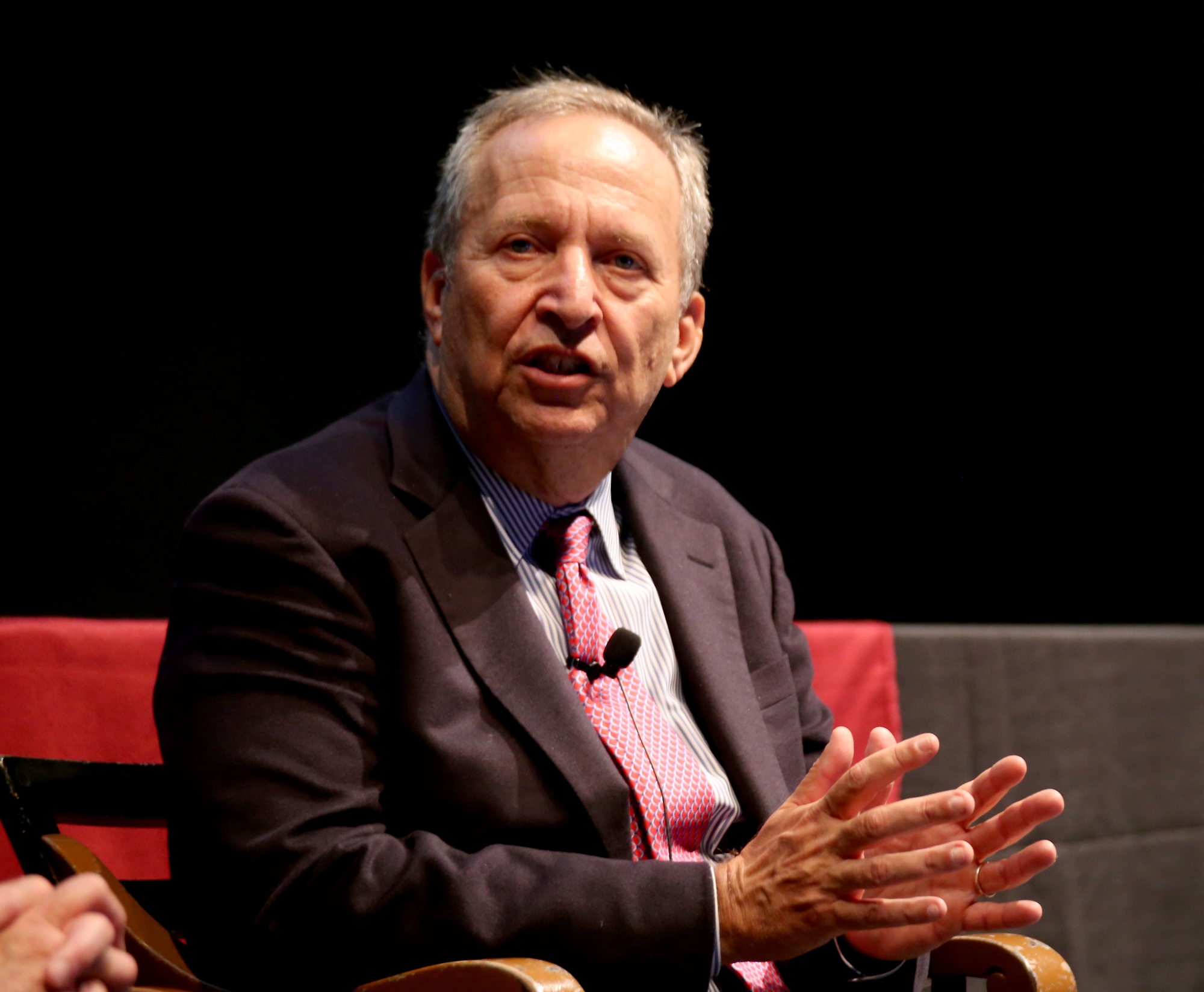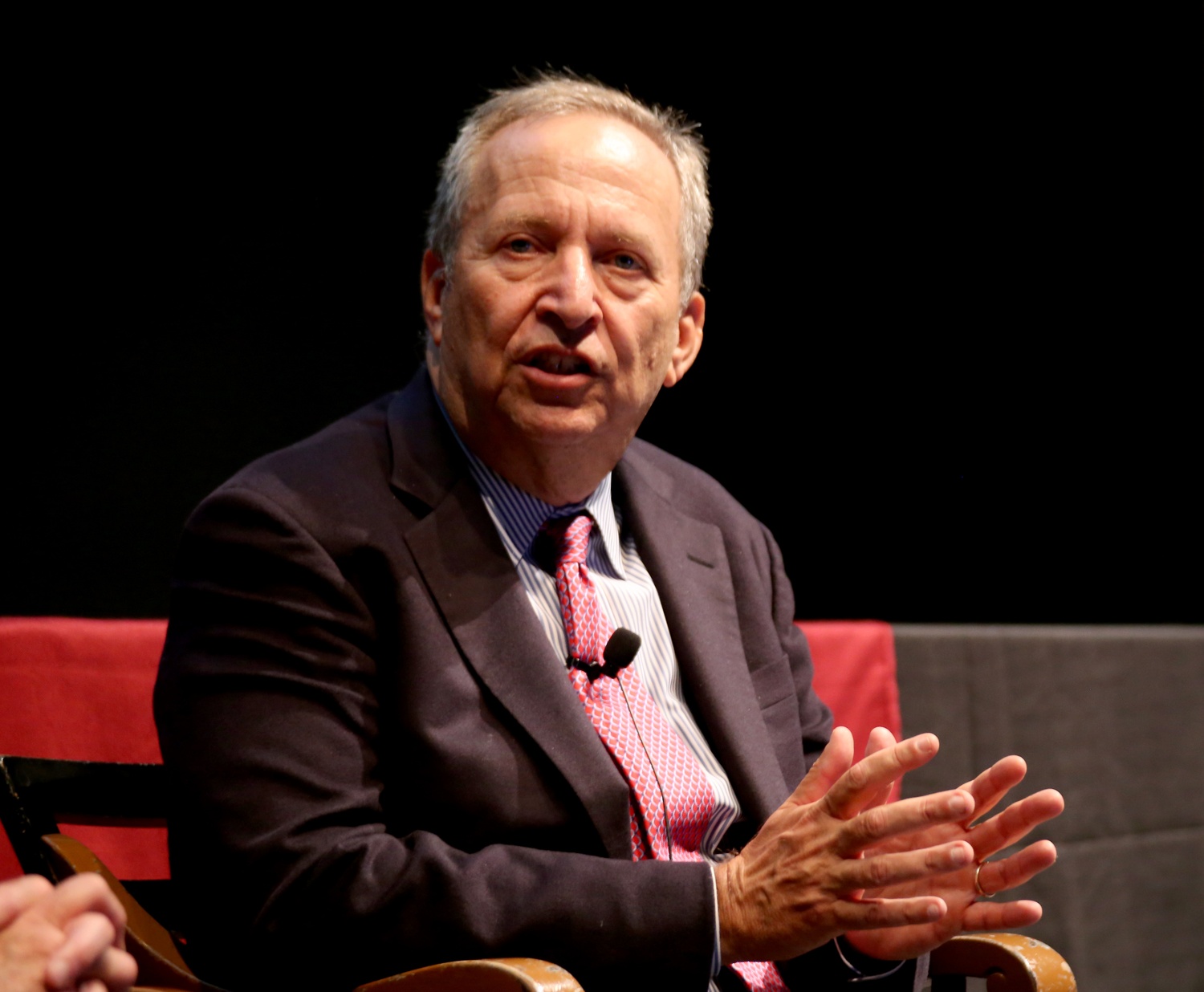
News
Summers Will Not Finish Semester of Teaching as Harvard Investigates Epstein Ties

News
Harvard College Students Report Favoring Divestment from Israel in HUA Survey

News
‘He Should Resign’: Harvard Undergrads Take Hard Line Against Summers Over Epstein Scandal

News
Harvard To Launch New Investigation Into Epstein’s Ties to Summers, Other University Affiliates

News
Harvard Students To Vote on Divestment From Israel in Inaugural HUA Election Survey
Summers Denounces Final Club Sanctions

Joining a host of critics, former University President Lawrence H. Summers denounced Harvard’s new sanctions for members of single-gender social organizations as inconsistent with values of free association and academic freedom.
The sanctions, announced earlier this month, will bar members of single-gender social organizations such as fraternities, sororities, and final clubs from holding leadership positions at in recognized groups and receiving College endorsement for top fellowships, beginning with the Class of 2021.
In an interview with The Crimson, Summers, who is a University Professor, criticized the change, arguing that the University should not legislate the views and values of its students, even as he acknowledged a personal distaste with final clubs.
“If I had a child at Harvard, I would strongly discourage my child from being a member of a final club,” Summers said. “That said, I think the freedom of association is a profoundly important value and I think the idea that we would condition fellowship letters or the opportunity to be elected by one’s peers as captain of a football team on agreement with certain values is inconsistent with the central values of an academic institution.”
Summers is neither the first to make similar arguments against the new sanctions, nor the first former administrator to challenge them. In a private letter to Dean of the College Rakesh Khurana, former Dean of the College Harry R. Lewis ’68 wrote that sanctions may engender “a College culture of fear and anxiety about nonconformity.”
Summers also said that pushing the organizations to become co-ed could actually bolster their influence over campus life while not resolving some other issues with the groups.
“There are many troubling aspects of final clubs. There is the risk that as they move to co-ed admissions in some form they will grow and come to have a larger and in some ways more problematic impact on College social life,” Summers said.
Since the announcement of the sanctions, University President Drew G. Faust, Harvard Corporation senior fellow William F. Lee ’72, Corporation treasurer Paul J. Finnegan ’75, and several athletic coaches, have supported the changes, arguing the sanctions are efforts to combat gender discrimination and exclusivity on campus.
“Although the fraternities, sororities, and final clubs are not formally recognized by the College, they play an unmistakable and growing role in student life, in many cases enacting forms of privilege and exclusion at odds with our deepest values,” Faust wrote in a letter to Khurana accepting his proposed changes. “The College cannot ignore these organizations if it is to advance our shared commitment to broadening opportunity and making Harvard a campus for all of its students.”
In the coming year, a committee of students, faculty, and administrators will work to determine how the new policy will be enforced.
—Staff writer Andrew M. Duehren can be reached at andy.duehren@thecrimson.com. Follow him on Twitter @aduehren.
Want to keep up with breaking news? Subscribe to our email newsletter.

